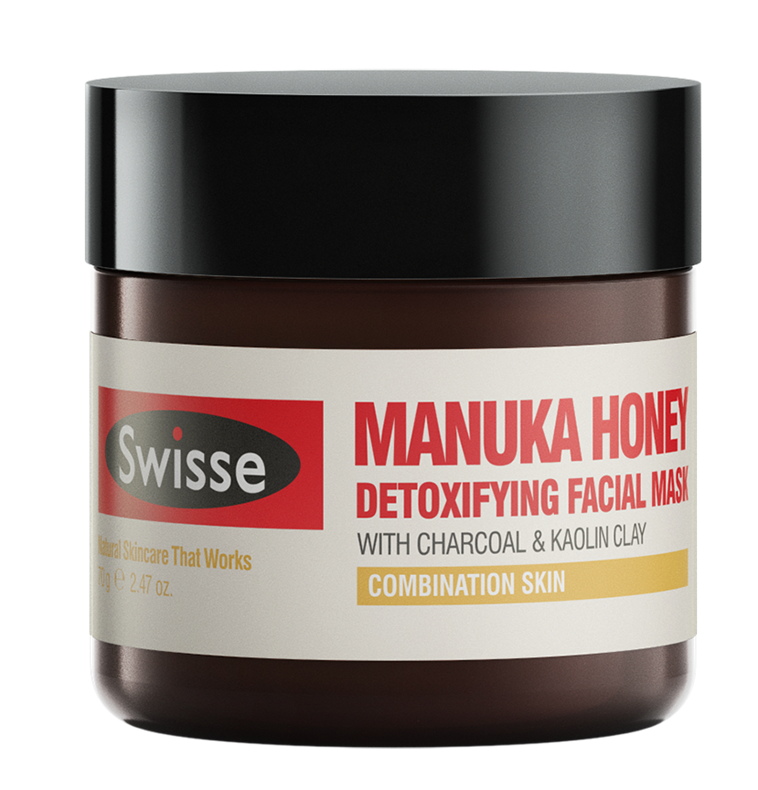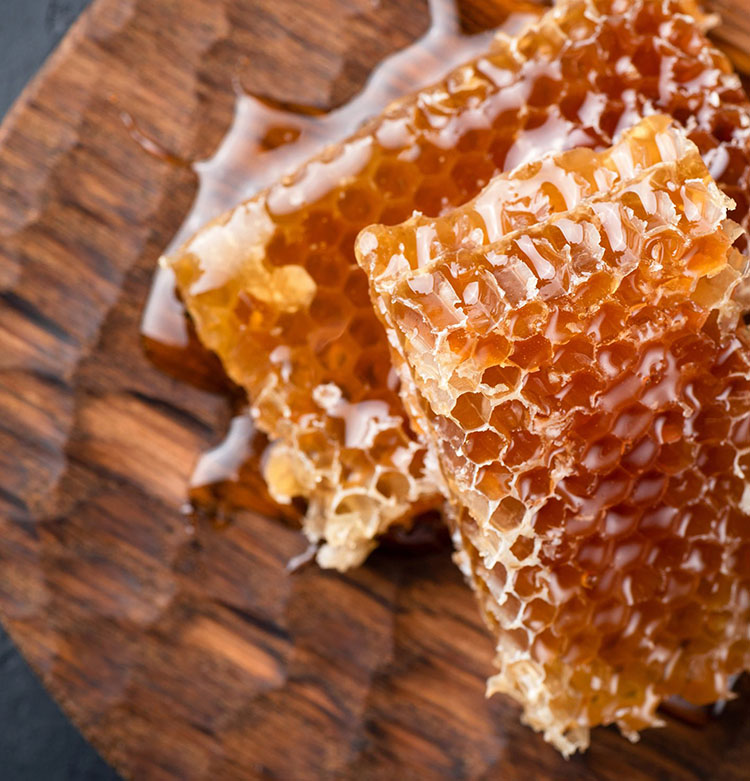Swisse Manuka Honey Detoxifying Facial Mask is a naturally absorbent facial mask, luxuriously formulated to purify and detoxify the skin, while leaving it feeling smooth and hydrated. Ideal for congested and blemish prone skin.

Swisse Manuka Honey Detoxifying Clay Mask
Swisse Manuka Honey Detoxifying Facial Mask is a naturally absorbent facial mask, luxuriously formulated to purify and detoxify the skin, while leaving it feeling smooth and hydrated. Ideal for congested and blemish prone skin.

Manuka Honey
Sourced from the Manuka Tree species in New Zealand. Manuka Honey is high in antioxidant compounds, which contribute to its healing and soothing properties.
Charcoal
Charcoal has a natural detoxifying effect and a chelating (binding) effect on environmental pollution and impurities, which it draws and binds to, assisting in their removal.
Kaolin Clay
A naturally occurring hydrated aluminium silicate. Kaolin’s absorbing properties make it ideal to utilise in facial masks due to mattifying (absorbing excess sebum), detoxifying (drawing out impurities) and reducing the appearance of large skin pores. It also has a calming and cooling effect.
Salicylic Acid
A gentle exfoliant that assists in the breakdown of dead skin cell build up. The structure of this acid allows for penetration into the philosebaceous unit, where it is able to dissolve excess sebum and dead skin cell build up (hyperkeratinisation) associated with acne lesions.
Apply to clean, dry skin. Leave on for 10 minutes, or until the mask feels firm and dry, then rinse off with warm water. Follow with your favourite Swisse natural oil and moisturiser. Recommended for use once to twice per week.
STORAGE:
Store below 28 degrees Celsius.
WARNINGS:
Test prior to use. In the unlikely event of a negative reaction, consult your medical practitioner
Manuka honey is produced in New Zealand by bees that pollinate the manuka tree. It’s called manuka honey because it’s made with pollen that comes from the manuka tree, which is native to New Zealand and some parts of Australia. You can recognise the manuka tree by its small white (sometimes pink) flowers and prickly leaves.
Read More